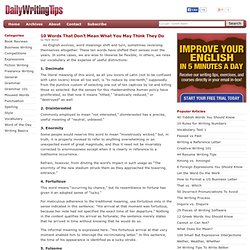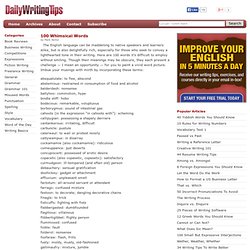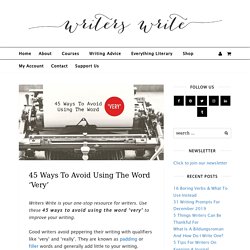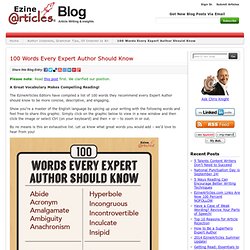

11 Untranslatable Words From Other Cultures. Imagine A Flying Pig: How Words Take Shape In The Brain : Shots - Health News. Hide captionAlthough a flying pig doesn't exist in the real world, our brains use what we know about pigs and birds — and superheroes — to create one in our mind's eye when we hear or read those words. iStockphoto.com Although a flying pig doesn't exist in the real world, our brains use what we know about pigs and birds — and superheroes — to create one in our mind's eye when we hear or read those words.

This is a story about a duck. More precisely, it's a story about what your brain just did when you read the word "duck. " Chances are, your brain created an image of a web-footed waterfowl. Just a few decades ago, many linguists thought the human brain had evolved a special module for language. But in the 1990s, scientists began testing the language-module theory using "functional" MRI technology that let them watch the brain respond to words. "They found something totally surprising," Bergen says. "A flying pig isn't something that actually exists in the real world," Bergen says.
100 Beautiful and Ugly Words. 10 Words That Don't Mean What You May Think They Do. By Mark Nichol As English evolves, word meanings shift and turn, sometimes reversing themselves altogether.

These ten words have shifted their senses over the years. In some cases, we are wise to likewise be flexible; in others, we relax our vocabulary at the expense of useful distinctions: 1. Decimate The literal meaning of this word, as all you lovers of Latin (not to be confused with Latin lovers) know all too well, is “to reduce by one-tenth,” supposedly from the punitive custom of selecting one out of ten captives by lot and killing those so selected. 2. Commonly employed to mean “not interested,” disinterested has a precise, useful meaning of “neutral, unbiased.” 3. Some people would reserve this word to mean “monstrously wicked,” but, in truth, it is properly invoked to refer to anything overwhelming or an unexpected event of great magnitude, and thus it need not be invariably corrected to enormousness except when it is clearly in reference to a loathsome occurrence. 100 Whimsical Words.
By Mark Nichol The English language can be maddening to native speakers and learners alike, but is also delightfully rich, especially for those who seek to convey a lighthearted tone in their writing.

13 Wonderful Old English Words We Should Still Be Using Today. As the years pass, language evolves.

Since the days of Chaucer and Shakespeare, we can all agree English has become less flowery. Some fantastic vocabulary just dropped out of everyday conversation. Author Mark Forsyth writes about the words we’ve lost. From his book “Horologicon” to his Tumblr and published articles, we compiled a list of the best words that need reviving. 1. 2. 3. 4. 10 Everyday Words With Unexpected Origins. Books Etymology, or the study of the origin of words, is dry, dusty stuff that will give you allergies if you play with it too long.

It also happens to be one of our favorite topics—because sometimes a word travels through such a twisted path to get to its modern meaning that all you can do is scratch your head and wonder how civilization manages to keep itself going. Read on to find out what word got its start with people biting the heads off chickens, how a peaceful word became an international symbol of hate, and how wooden shoes changed the world. What it means now: “Completely lacking in subtlety; very obvious.” What it used to mean: A thousand-tongued beast from hell. In the 1600s, British began using the word blatant as a way to describe people who were vulgar and noisy. “The Faerie Queen” was essentially a long, drawn out allegory for 16th century English religion, and each character symbolized either a person or ideal in the real world. 45 ways to avoid using the word 'very'. Writers Write is your one-stop resource for writers.

Use these 45 ways to avoid using the word ‘very’ to improve your writing. Good writers avoid peppering their writing with qualifiers like ‘very’ and ‘really’. They are known as padding or filler words and generally add little to your writing. According to Collins Dictionary: ‘Padding is unnecessary words or information used to make a piece of writing or a speech longer. Synonyms include: waffle, hot air, verbiage, wordiness.’ Adding modifiers, qualifiers, and unnecessary adverbs and adjectives, weakens your writing.
Interesting and Unusual Words. 100 Words Every Expert Author Should Know. Please note: Read this post first.

We clarified our position. A Great Vocabulary Makes Compelling Reading! The EzineArticles Editors have compiled a list of 100 words they recommend every Expert Author should know to be more concise, descriptive, and engaging. Show you’re a master of the English language by spicing up your writing with the following words and feel free to share this graphic.
Simply click on the graphic below to view in a new window and then click the image or select Ctrl (on your keyboard) and then + or – to zoom in or out. By no means is this an exhaustive list.